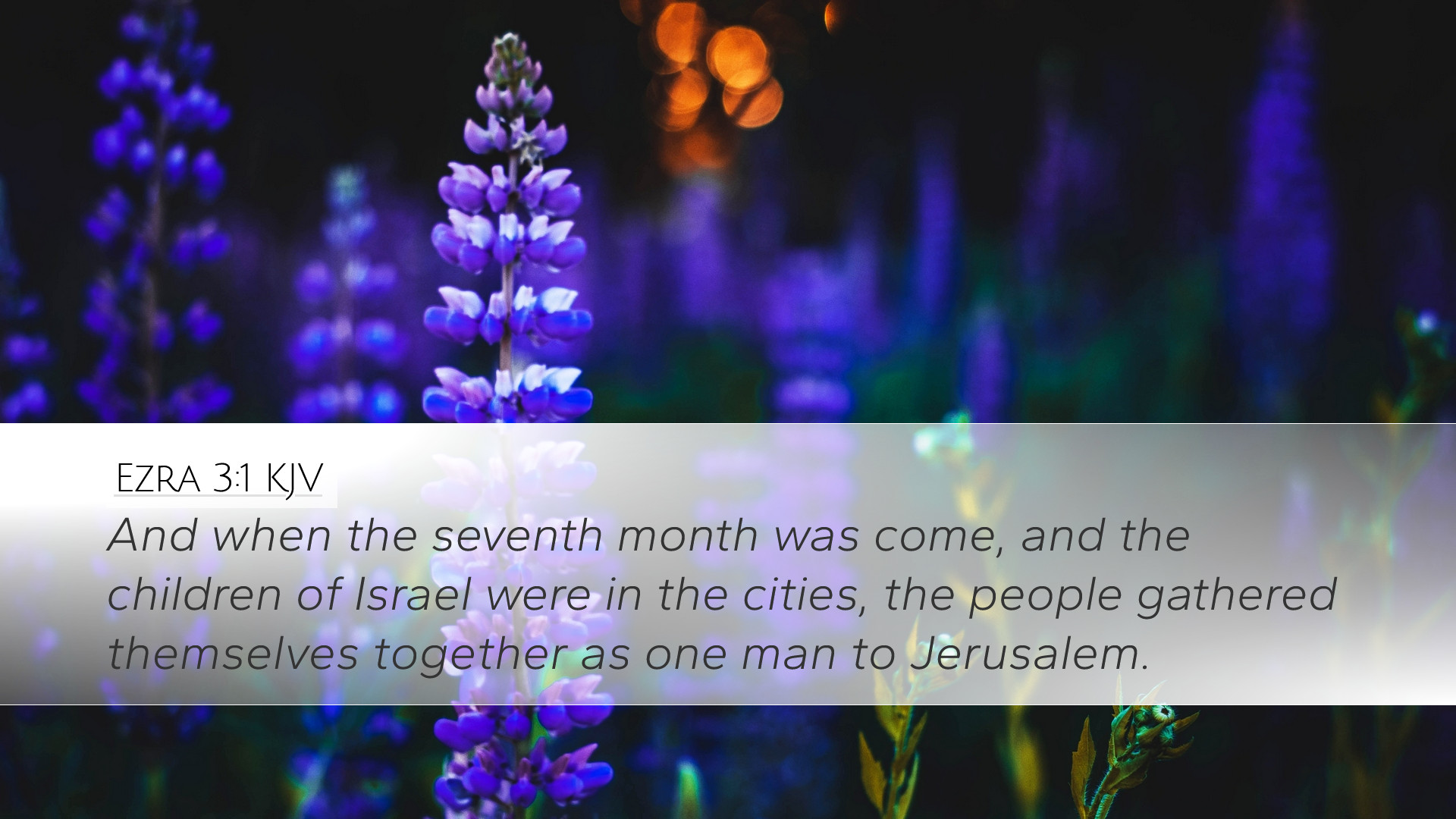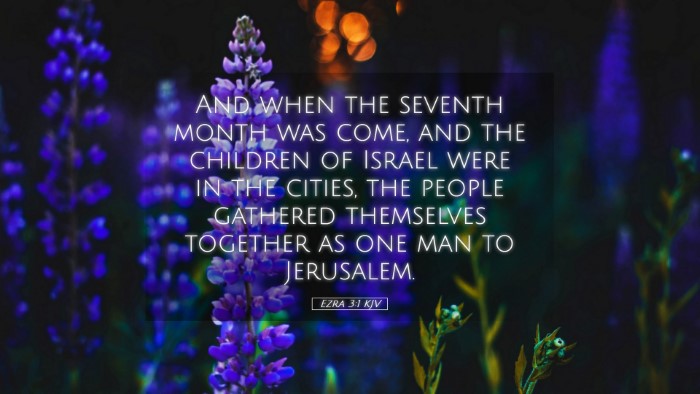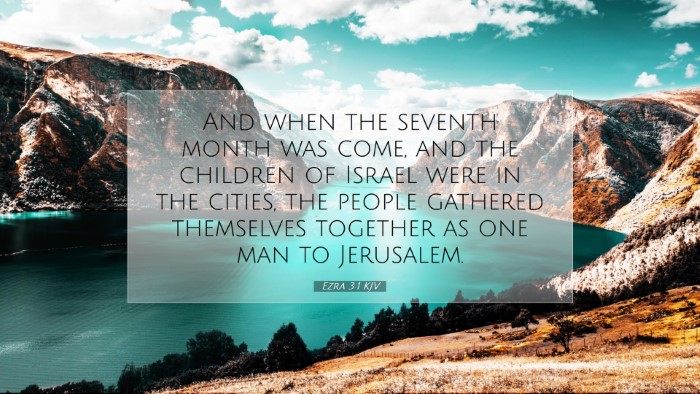Old Testament
Genesis Exodus Leviticus Numbers Deuteronomy Joshua Judges Ruth 1 Samuel 2 Samuel 1 Kings 2 Kings 1 Chronicles 2 Chronicles Ezra Nehemiah Esther Job Psalms Proverbs Ecclesiastes Song of Solomon Isaiah Jeremiah Lamentations Ezekiel Daniel Hosea Joel Amos Obadiah Jonah Micah Nahum Habakkuk Zephaniah Haggai Zechariah MalachiEzra 3:1
Ezra 3:1 KJV
And when the seventh month was come, and the children of Israel were in the cities, the people gathered themselves together as one man to Jerusalem.
Ezra 3:1 Bible Commentary
Bible Commentary: Ezra 3:1
Ezra 3:1 states:
"And when the seventh month was come, and the children of Israel were in the cities, the people gathered themselves together as one man to Jerusalem."
Contextual Background
The book of Ezra is a crucial text documenting the restoration of the Jewish people following the Babylonian exile. Ezra 3 marks a turning point in this narrative as it chronicles the return of the exiles to Jerusalem and their immediate intent to restore worship. The verse specifically highlights the significant actions occurring in the seventh month of the Jewish calendar, which correlates with important religious observances.
Theological Insights
This verse serves as a powerful depiction of unity among the returning Israelites. The phrase "gathered themselves together as one man" signifies an essential principle in biblical theology: the importance of communal worship and collective identity among believers.
Matthew Henry's Perspective
Matthew Henry emphasizes the strategic timing of this assembly in the seventh month, which aligns with the Feast of Trumpets, a time for reflection and worship. He notes:
"The children of Israel, after their return, immediately set to work to restore the service of God, which was the first thing they aimed at." - Matthew Henry
Henry underscores that the unity displayed is a reflection of their shared purpose and focus on divine worship, setting a precedent for the spiritual priorities of God’s people.
Albert Barnes' Commentary
Albert Barnes contributes to this discussion by highlighting the significance of gathering "as one man." He elaborates:
"This collective gathering denotes an essential motivation led by a spirit of revival—an awakening to the holiness of God and the necessity of worship." - Albert Barnes
According to Barnes, their unity serves not only to restore worship but also symbolizes a covenant observance. He suggests that such unity among believers is crucial for the fulfillment of God’s purposes in a community.
Adam Clarke's Interpretation
Adam Clarke provides a rich interpretation regarding the seventh month, linking it with various festivals and historical remembrance:
"The seventh month was a time of festivals. They were to be reminded of their national identity, and the importance of their covenant with God." - Adam Clarke
Clarke notes that the gathering for worship was not merely a social occasion but an essential act of reaffirming faith and identity. He emphasizes their return to the covenant relationship with God, highlighting the importance of collective worship in maintaining that relationship.
Practical Applications
For modern pastors, students, and theologians, this verse presents several practical applications:
- Unity in Worship: This verse showcases the power of unity in worship. Modern-day congregations can draw lessons on the importance of gathering together for collective worship, emphasizing shared identity in Christ.
- Prioritizing Worship: The quick response of the Israelites to restore worship reflects a commitment that should inspire current believers to prioritize collective worship in their lives and communities.
- Historical Remembrance: Understanding the historical context of rituals and festivals can enhance the depth of worship experience today, prompting believers to engage more deeply in their faith journey.
- Communal Identity: Recognizing that worship is not just an individual act but a profound expression of community can encourage believers to come together in faith and mutual support.
Conclusion
In summary, Ezra 3:1 encapsulates a vital moment in the Jewish return to Jerusalem, emphasizing themes of unity, worship, and identity. Insights from Matthew Henry, Albert Barnes, and Adam Clarke illuminate the significance of collective worship and the need for believers to remain steadfast in their commitment to God’s purposes. This verse is not just a historical reference but a timeless reminder of the power of community and the importance of drawing together in reverence and worship of the Creator.


